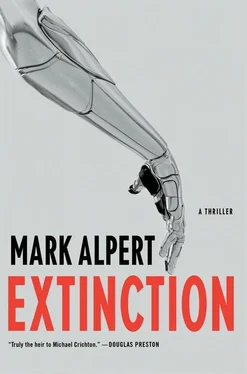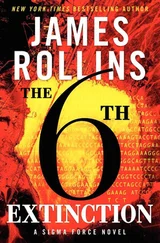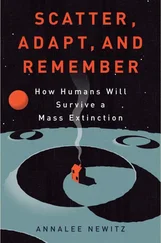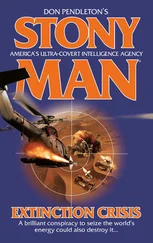She employed an old trick to find the local smugglers, a tactic Jim Pierce had taught her long ago. When you’re in a border town, he’d told her, just look for the fanciest car. In all likelihood, it belonged to either the head of the smuggling ring or one of the officials he was paying off. Pianma was a relatively small town, and in less than ten minutes Kirsten found a beautiful black Mercedes parked on a side street. The car sat in front of a shop selling women’s clothing. This was a lucky break for Kirsten—she really needed a new blouse. She entered the shop and quickly perused the clothing, which was a drab mix of pants, shirts, and underwear. There were no other customers in the place and the merchandise looked old. Kirsten guessed that the shop was just a front for the smugglers, a convenient location for arranging their deals.
Kirsten selected a blue shirt in her size and brought it to the counter. The woman behind the cash register was Lisu, but she wore a tasteful Western pantsuit, which was another sign of wealth. She gave a start when she saw Kirsten. “Oh my!” she said in heavily accented Mandarin. “What happened to your blouse?”
Kirsten looked down at the bloodstain. “My boyfriend cut my chin. It’s a long story. How much does the shirt cost?”
The shopkeeper narrowed her eyes. Along with her pantsuit, she wore a necklace with a small gold crucifix. A larger cross hung on a door at the back of the shop. Kirsten recalled a pertinent fact about the Lisu: Many of them were Christian. British and American missionaries had trekked to this area in the early 1900s and converted several of the clans.
“That’s one of our better shirts,” the shopkeeper said. “I’d normally charge two hundred yuan, but I’ll let you have it for a hundred and fifty.” She smiled slyly and lowered her voice. “I take American money, too. You can have the shirt for twenty American dollars.”
Kirsten smiled back at her. “Funny that you mention American money. I have a nice pile of it right here.” She reached into her pocket and pulled out her roll of hundred-dollar bills. It was much smaller than it was when she’d left the States, but she still had $3,800. “I’m hoping to do some traveling in Burma. Do you know any tour operators?”
The shopkeeper stared at the cash. “I might be able to arrange something. Can I see your identification papers?”
“I don’t have any. Will that be a problem?”
The woman stared at the money for a few more seconds before coming to a decision. “Please wait here,” she said. Then she walked to the back of the shop and went through the door with the large crucifix on it.
While the woman was gone, Kirsten took off her bloodstained blouse and changed into the blue shirt. It was ugly, but it did the job. She was tucking it into her pants when the shopkeeper reappeared, holding the door open. “You can come in,” she said. “My manager wishes to speak to you.”
Without hesitation, Kirsten strode through the doorway. But as soon as she stepped into the back room, two big Lisu men closed the door behind her and grabbed her arms.
They held her still while a third man patted her down and went through her pockets. The thug took her cash, her satellite phone, and Arvin’s flash drive and dumped them all on a desk in the middle of the room. Sitting behind the desk was a fourth man, who was also Lisu but much smaller and older than the other three. His hair was white and his face was wrinkled, but he had lively eyes and perfect teeth. He wore a gorgeously tailored pin-striped suit and a gold chain with a crucifix.
“Hello, Ms. Chan,” he said in English. “How good of you to stop by.”
Startled, Kirsten wondered for a moment if the old man was a Module, despite his full head of hair. But then he held up a sheet of paper, and she saw her own picture on it, and Jim’s as well. It was the same flyer she’d seen in the hands of the police officers in Yichang. Thousands of copies had probably been distributed across the country by now.
“My name is Wang Khaw,” the old man said. He waved the flyer in the air. “I received this yesterday from one of my friends at the Public Security Bureau. They know I do a fair amount of business at the border, so they try to keep me informed.” He tapped a bony finger on the Mandarin text below her photo. “It says here that you’re an intelligence agent for the Americans. Is that true?”
Kirsten nodded. There was no point in lying to the man. The satellite phone was a dead giveaway. She tried to approach Wang’s desk, but the thugs tightened their grip on her arms and pulled her back. “Look, there’s three thousand eight hundred dollars on your desk,” she said. “And that’s just a down payment. If you help me cross the border, I’ll contact the CIA agents in Kachin State and get you some serious cash. Fifty thousand dollars, how does that sound?”
Wang frowned. “Fifty thousand? That’s all? The Ministry of State Security is offering twice as much for you.” He shook his head. “Fortunately for you, Ms. Chan, I’m not interested in money right now. I want information. Specifically, any information you have about the PLA operation that took over my town this afternoon.”
The old man’s face was tense. Kirsten could see why Wang might resent the presence of the Chinese army, which would surely put a damper on his smuggling activities. And because the Lisu of Yunnan Province were close cousins to the Kachin of northern Burma, she supposed that Wang might not like the idea that the PLA was preparing to attack the Kachin militias.
She gave him a sober look. A good intelligence officer, she reminded herself, makes the most of the facts she has. “This deployment is obviously a reaction to what happened at the Three Gorges Dam. The People’s Republic is lashing out at its enemies, and the Kachin rebels are at the top of the list. The Burmese army can’t control Kachin State, so the PLA is going to do the job for them.”
Wang curled his lip. “Is that the best you can do? Telling me what’s obvious?” He raised his voice. “Does the Chinese government really think the Kachin blew up their dam?”
“It doesn’t matter. The PLA sees this as an opportunity to crush the militias once and for all.” Kirsten didn’t know if this was true, but she spoke with the utmost confidence. “There’s been a change in the leadership of the People’s Republic. The Politburo has become more aggressive, and they’ve launched new operations to eliminate their opponents. I’ve been investigating one of those operations, a project named Tài Hé. It’s based near Lijiang, just one hundred and fifty kilometers from here.”
“Go on,” Wang said, leaning back in his chair. “Is Tài Hé connected to the PLA deployment?”
“I believe so. The Politburo is obsessed with keeping the project secret, but I managed to infiltrate one of their computers.” She stepped toward Wang’s desk and this time the thugs let her go. She pointed at Arvin’s flash drive. “All the information is in there. I’m trying to get it to my superiors in Washington. That’s why every policeman in this country is looking for me.”
Wang picked up the flash drive. “And what secret could possibly be so important?”
“Tell me something, Mr. Wang. Have your employees noticed anything strange over the past few months? Any odd gray clouds that hover over the mountains near the border? Clouds that move like swarms of insects?”
It was just a guess. Kirsten had no idea whether the Guoanbu had sent drone swarms to the Burmese border. But it was an educated guess. The section of the border near Pianma was certainly one of the places where the Chinese government would’ve wanted to conduct surveillance operations. And after several seconds of stunned silence, Kirsten realized she’d guessed right. Wang exchanged glances with his thugs, who shifted nervously from foot to foot.
Читать дальше












